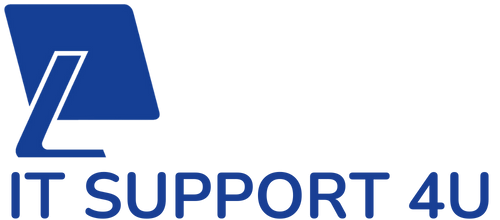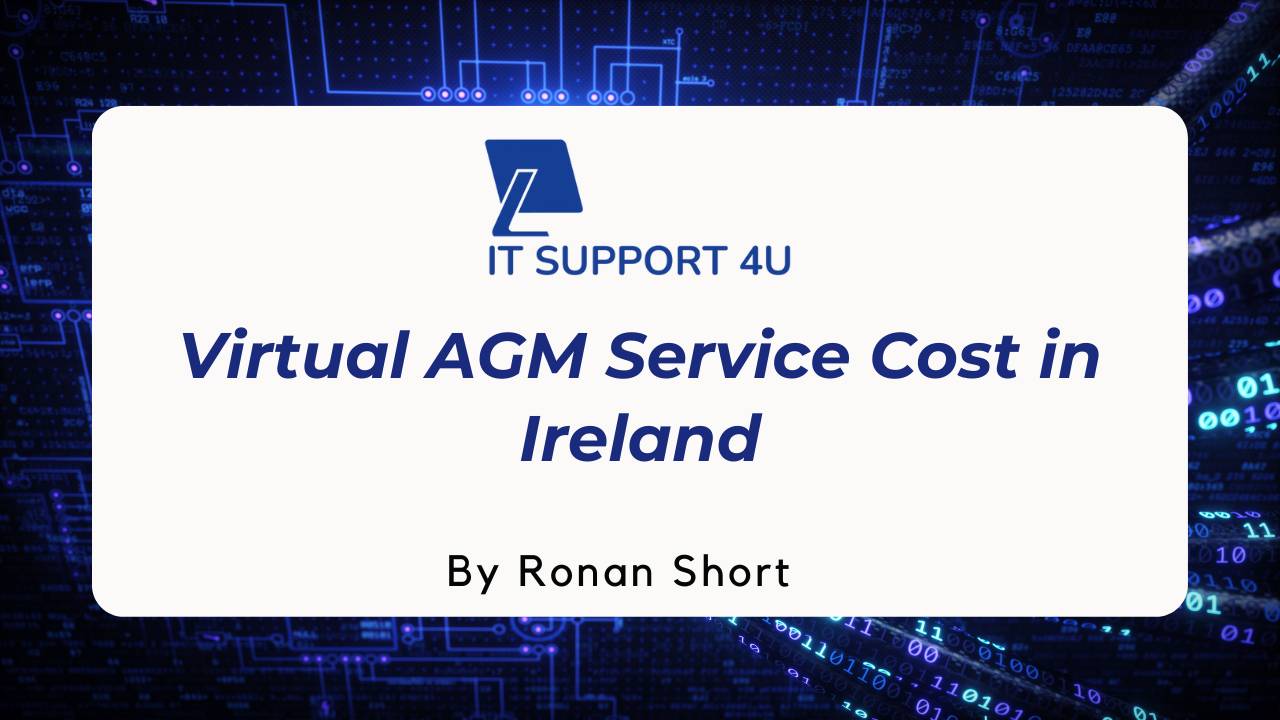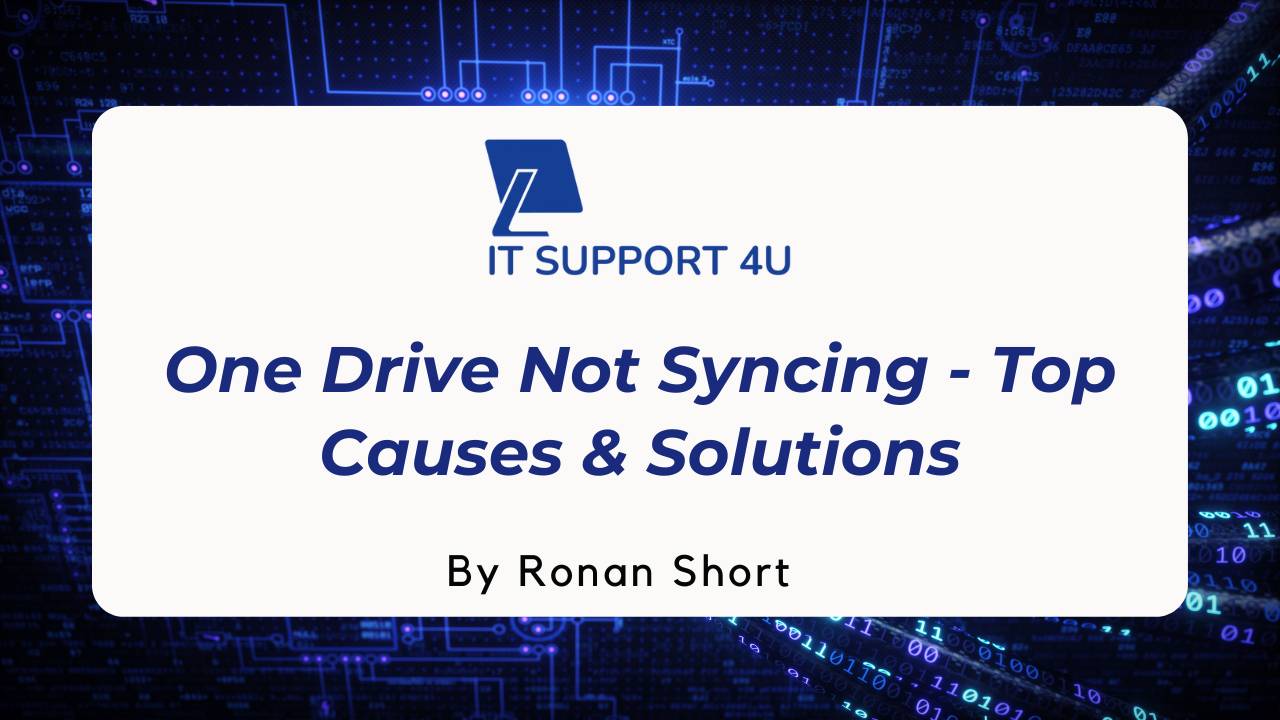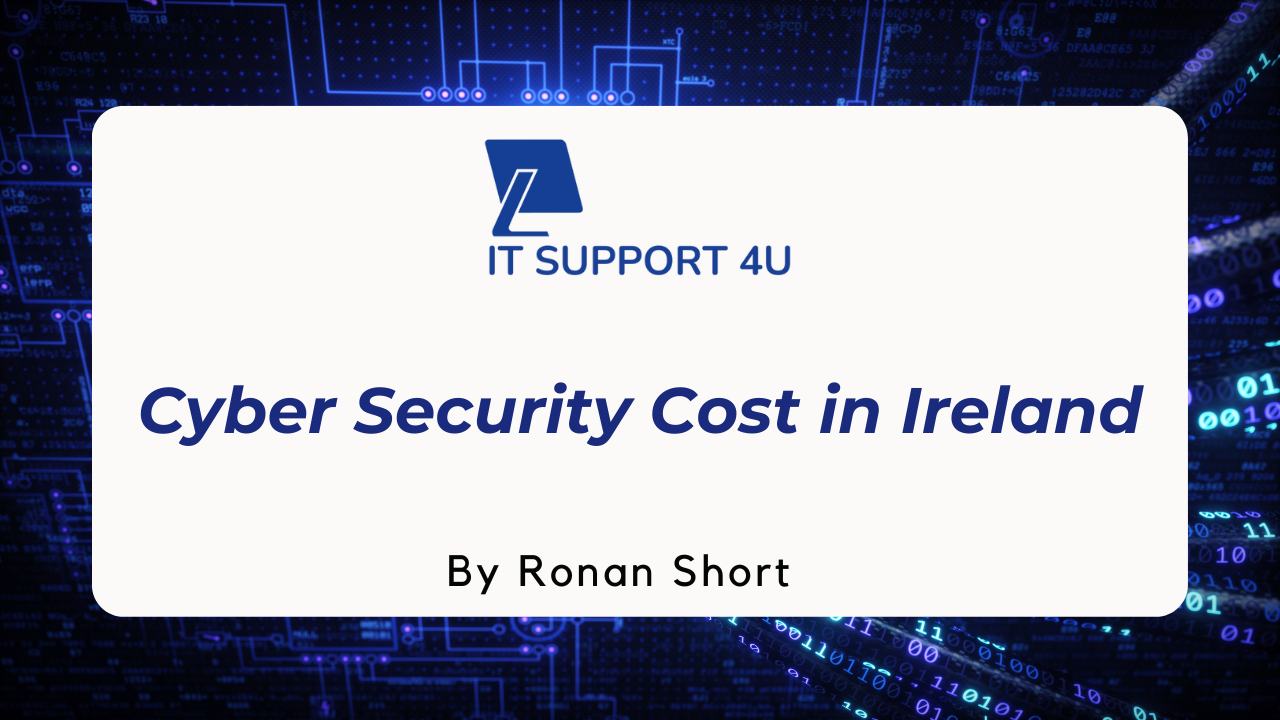Are you considering whether your business needs antivirus software? Many Irish business owners have wrestled with this question. A noteworthy fact is that in 2020 alone, the Federal Bureau of Investigation registered a nearly 70% rise in cybercrime reports.
So, this blog post delves into the intricacies surrounding businesses and antivirus protection to help clarify this crucial issue for you.
Key Takeaways
- Antivirus software alone is not enough to protect businesses from cyber threats. It has limitations in defending against insider threats, compromised devices, advanced persistent threats, and unknown malware.
- Businesses need to supplement antivirus software with comprehensive cybersecurity measures such as employee training, regular software updates, access controls, network monitoring, and data backups.
- Supplementing antivirus software with other security solutions like firewalls, intrusion detection systems (IDS), data encryption, multi-factor authentication (MFA), and web filtering can enhance the overall cybersecurity posture.
- Implementing managed IT support provides continuous monitoring and proactive security solutions to safeguard business data effectively.
The Limitations of Antivirus Software
Antivirus software has its limitations in defending against insider threats, compromised devices, advanced persistent threats, and unknown malware.
Inability to defend against insider threats
Insider threats pose a significant risk to our businesses. Unhappily, traditional antivirus software often lacks the tools necessary to combat these internal risks effectively. Employees with ill intentions or those unaware of good cybersecurity practises can unknowingly introduce harmful malware into our secure networks.
A disgruntled staff member might misuse their access privileges and intentionally compromise sensitive company data, bypassing the antivirus' capabilities entirely. While we typically view antivirus programmes as comprehensive solutions, it's clear that enhancing them with additional measures is crucial to enforcing total data safety.
Employing robust strategies such as regular employee training, updated cybersecurity policies, and sophisticated threat monitoring systems should complement the use of an antivirus programme to effectively shield against insider threats.
Inadequate protection against compromised devices
Businesses face a significant challenge when it comes to protecting their data and systems from compromised devices. While antivirus software can defend against certain threats, it often falls short in this area.
When devices are compromised, such as an employee's laptop or smartphone, they can become an entry point for hackers to gain unauthorised access to sensitive information. This is particularly concerning because compromised devices may not show any signs of infection and can go undetected by traditional antivirus solutions.
Without adequate protection against compromised devices, businesses are at risk of experiencing data breaches and exposing critical company information.
The importance of safeguarding against compromised devices cannot be overstated. Hackers are becoming more sophisticated in their tactics, utilising advanced techniques that can easily bypass standard antivirus software.
It is crucial for businesses to implement additional security measures that focus on detecting potential compromises within the network and identifying any suspicious activity on connected devices.
By doing so, businesses can minimise the risk of unauthorised access and protect their valuable data from falling into the wrong hands.
To effectively address this issue, business owners should consider investing in comprehensive cybersecurity solutions that include features specifically designed for detecting and defending against compromised devices.
These solutions go beyond traditional antivirus software by continuously monitoring device behaviour and network traffic patterns for any signs of compromise or abnormal activity.
Ineffectiveness against advanced persistent threats
Antivirus software, although effective in many cases, is often ineffective against advanced persistent threats. These sophisticated cyberattacks are specifically designed to evade traditional antivirus detection methods and can remain undetected for long periods of time.
This means that relying solely on antivirus software may leave your business vulnerable to these targeted and persistent attacks. It is important to supplement your cybersecurity measures with additional tools and strategies to effectively defend against advanced persistent threats.
Challenges in detecting unknown malware
Detecting unknown malware poses significant challenges for businesses. Traditional antivirus software relies on signature-based detection methods, which means it can only identify known threats.
However, with the rapidly evolving nature of malware, new variants are constantly appearing that may not have a recognisable signature. This makes it difficult for antivirus programmes to detect and protect against these emerging threats.
Additionally, hackers often employ sophisticated techniques to hide their malware or disguise it as legitimate files, further complicating its detection. As a result, businesses need advanced security solutions that go beyond traditional antivirus software to effectively safeguard their systems and data from unknown malware threats.
The Importance of Comprehensive Cybersecurity Measures
Building robust cybersecurity policies, supplementing antivirus software with other security solutions, and implementing managed IT support are essential steps businesses must take to protect their sensitive data from cyber threats.
So, discover how these comprehensive measures can enhance your business's overall cybersecurity posture.
Building cybersecurity policies
We understand the importance of protecting your business from cyber threats. That's why building strong cybersecurity policies is crucial. Here are some key steps to consider:
- Establish clear security protocols: Create a comprehensive set of rules and guidelines for employees to follow when it comes to data handling, password management, and device usage.
- Regularly update and patch software: Ensure that all devices and systems are running the latest versions of software and operating systems. Regular updates help address vulnerabilities and protect against potential breaches.
- Implement access controls: Limit access to sensitive data by granting permissions based on job roles and responsibilities. This helps prevent unauthorised access or accidental leaks.
- Educate employees about cybersecurity: Conduct regular training sessions to educate your staff about best practises in data protection, recognising phishing scams, and maintaining strong passwords.
- Secure network infrastructure: Employ firewalls, secure routers, and virtual private networks (VPNs) to safeguard your network from external threats.
- Backup critical data: Regularly back up important files and databases to an off-site location or cloud storage. This ensures that you can recover your data in the event of a breach or system failure.
- Monitor network activity: Implement tools that provide real-time monitoring of network traffic, allowing you to identify any suspicious activity or potential security breaches quickly.
- Conduct regular security audits: Periodically review your cybersecurity measures to identify vulnerabilities and make necessary improvements.
Supplementing antivirus software with other security solutions
We understand that antivirus software is an essential tool for protecting your business from viruses and malware. However, to ensure comprehensive cybersecurity, it is crucial to supplement antivirus software with other security solutions. Here are some options to consider:
- Firewalls: Implementing a robust firewall can help prevent unauthorised access to your network and protect against malware threats.
- Intrusion Detection Systems (IDS): IDS monitors network traffic for any suspicious activities or intrusion attempts, allowing you to detect and respond swiftly to potential cyberattacks.
- Data Encryption: Encrypting sensitive data adds an extra layer of protection, ensuring that even if it is compromised, it remains unreadable to unauthorised individuals or hackers.
- Employee Training: Educating your employees on cybersecurity best practises helps reduce the risk of human error leading to security breaches, such as falling victim to phishing scams or clicking on malicious links.
- Regular Software Updates: Keeping all software and operating systems up-to-date is vital, as updates often include patches for vulnerabilities that cybercriminals may exploit.
- Backup and Recovery Solutions: Regularly backing up your important data and having a reliable recovery plan in place will help minimise the impact of potential data loss due to cyberattacks.
- Multi-Factor Authentication (MFA): Implementing MFA adds an extra layer of security by requiring users to provide multiple forms of verification before accessing sensitive information or systems.
- Web Filtering: Using web filtering tools can help block access to malicious websites, reducing the risk of employees inadvertently downloading malware onto their devices.
Implementing managed IT support
Implementing managed IT support is crucial for businesses to ensure comprehensive cybersecurity measures. Managed IT support provides continuous monitoring, maintenance, and proactive security solutions to safeguard business data from threats such as viruses, malware, and hackers.
With the assistance of a dedicated IT team, businesses can stay updated with the latest security patches and implement robust network security protocols. Managed IT support also helps in detecting and responding promptly to any potential cyber threats or breaches, minimising downtime and financial losses.
By investing in managed IT support services, businesses can enhance their overall cybersecurity posture and protect sensitive information effectively.
Choosing the Right Antivirus Software for Business
When selecting antivirus software for your business, it is crucial to consider key features, such as real-time scanning, automatic updates, and comprehensive threat detection.
Key features to consider
When choosing antivirus software for your business, it is important to consider key features that will provide the best protection for your valuable data. Here are some features to look out for:
- Real-time scanning: This feature automatically scans files and programs in real-time, detecting and removing any threats immediately.
- Automatic updates: Make sure the antivirus software you choose has automatic update capabilities. This ensures that you are always protected against the latest threats.
- Email protection: Look for antivirus software that offers email scanning and filtering. This will help prevent phishing scams and malware from infiltrating your business through emails.
- Web browsing security: Ensure that the antivirus software includes web browsing protection, blocking access to malicious websites and preventing drive-by downloads.
- Firewall integration: Choose antivirus software that integrates with a firewall or includes its own firewall. A firewall adds an extra layer of security by monitoring incoming and outgoing network traffic.
- Centralised management: If you have multiple devices in your business, consider antivirus software that allows centralised management. This will make it easier to monitor and manage the security of all devices from one central location.
- Customizable scanning options: Look for antivirus software that allows you to customise scan schedules and settings according to your business needs.
- Support and customer service: Ensure that the antivirus vendor provides reliable customer support in case you encounter any issues or have questions about the software.
Standalone antivirus software vs. antivirus software suites
For Irish business owners, understanding the difference between standalone antivirus software and antivirus software suites can be instrumental in making an informed decision for your business's cybersecurity. Let's look at their differences:
Standalone Antivirus Software:
- Standalone antivirus software focuses solely on defending against viruses, spyware, and phishing scams. It is designed to detect, deflect, and remove malware.
- Standalone antivirus software requires you to manually monitor and update your system to maintain protection against the latest threats.
- Standalone antivirus software can be a more economical option, focusing on basic protection for your business data against viruses and malware.
- Standalone antivirus software serves as a solid security layer, but it's not enough to fully protect your business. It should be used alongside other tools and policies for optimal security.
Antivirus Software Suites:
- Antivirus software suites can potentially offer a more holistic solution to cybersecurity, reducing the risk of downtime and financial losses caused by cyberattacks.
- Antivirus software suites offer a comprehensive range of security features, such as firewalls, email protection, and encryption, in addition to antivirus protection.
- Antivirus software suites tend to automatically monitor and update, providing an additional layer of convenience and protection.
- Antivirus software suites, while more expensive, provide comprehensive security solutions, protecting sensitive business information and preventing data breaches.
So, remember, with the growing threat of cybercrime, we cannot afford to overlook the need for robust antivirus protection. Making the right choice between standalone antivirus software and antivirus software suites will depend on your business's specific needs and resources.
Cloud-based antivirus software
Cloud-based antivirus software is a powerful tool that businesses should consider implementing to enhance their cybersecurity measures. With this type of software, your business can benefit from continuous protection and automatic updates without the need for manual installations or maintenance.
Cloud-based antivirus solutions offer real-time threat detection and quick response capabilities, ensuring that your systems are safeguarded against the latest malware and cyber threats.
By leveraging the power of cloud technology, these antivirus solutions provide efficient scanning and removal of viruses, spyware, and phishing scams, helping you protect sensitive business information and prevent data breaches.
Securing Your Business: Antivirus and Beyond
In conclusion, antivirus software is an essential tool for businesses to protect their data and systems from viruses, malware, and other cyber threats. However, it is important to recognise the limitations of antivirus software and supplement it with comprehensive cybersecurity measures.
By implementing strong security policies, utilising other security solutions, and staying updated with managed IT support, businesses can enhance their overall protection against evolving cyberattacks.
So, don't leave your business vulnerable; invest in reliable antivirus software alongside a holistic cybersecurity approach to safeguard your valuable assets.
Secure Your Business Now! Ensure comprehensive protection with a blend of antivirus and advanced cybersecurity measures.
Get an IT Plan Today!













